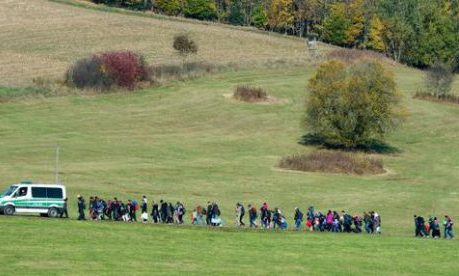“We can do it.” These are the four words that are dividing Germany. It has now been exactly one year since Chancellor Angela Merkel announced her motto for overcoming the refugee crisis.
Even though many of her critics can no longer stand to hear her “approach to tackling the problem,” as she recently described it in an interview with theSüddeutsche Zeitung, the chancellor isn’t backing down.
Germany has achieved a lot, Merkel says today, but there is also much left to be done. So where do we stand? What have we achieved? And where have we fallen short?
Refugee Numbers
More than a million people came to Germany in the past year, from Syria, Iraq, Afghanistan, North Africa and the Balkans.
Even the chancellor, who had so vehemently resisted the ceiling on the number of refugees allowed into the country proposed by Bavaria’s conservative Christian Social Union (CSU) party, was soon promising to “noticeably” reduce refugee numbers.
This effort was successful, even though it wasn’t Merkel’s achievement. About 220,000 migrants were newly registered in the first half of this year.
The numbers have declined month after month. According to Germany’s nationwide EASY registration system, 92,000 migrants and refugees were registered in January and only about 16,000 in July.
There are two reasons for this decline. The first is that after months of chaos the southeastern European countries have sealed off the Balkan route — without outside help. The second is that Turkey, as part of a morally dubious deal with the EU, is preventing refugees from continuing to Europe.
Whether this pact remains in place is now more uncertain than ever, following the attempted coup in Turkey. At the same time, migration pressure remains high as the war continues to rage in Syria. Refugees are now searching for alternative routes. Continue reading
Source and image
